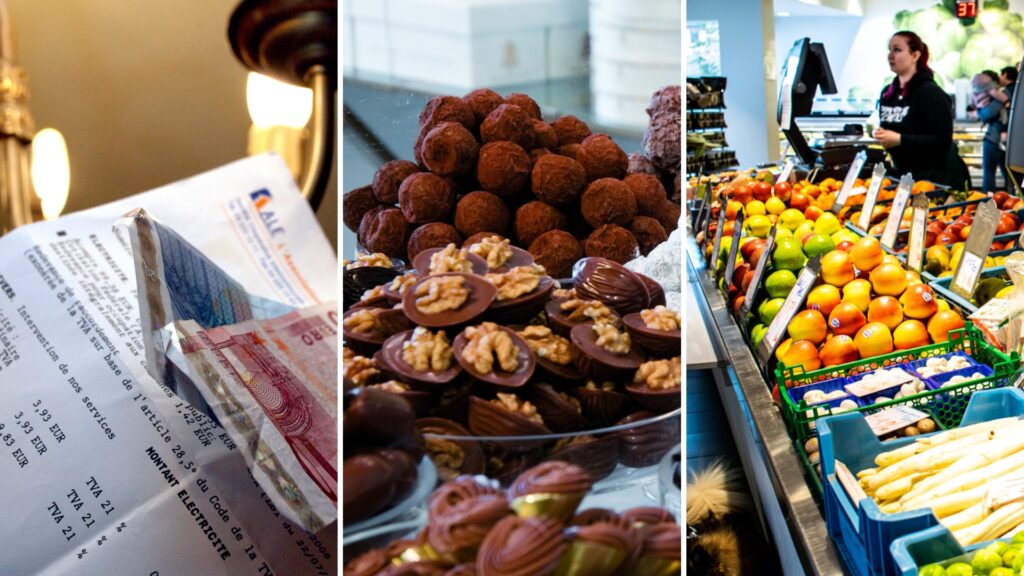Inflation in Belgium remained stable at 3.18% in March, marking what analysts believe to be the end of a five-month increase.
Belgium's annual headline rate as measured by the Harmonised Index of Consumer Prices (HICP) – the EU's preferred inflation index – stood at 3.18% in March, down by 0.02 percentage points compared to February when inflation was 3.2%, Belgium's statistics agency Statbel reported on Thursday. This means that the monthly costs borne by an average Belgian household were 3.18% higher than in the same month in 2023.
The figure peaked at 12.27% in October 2022 before falling almost continuously to 0.36% in October 2023. It then almost doubled from 1.75% in January to 3.2% in February, putting Belgium in the unenviable European leading group when it came to rising cost of living.
The latest figure is in part good news, as it shows that inflation is slowing. But it is also higher than the 2.8% the Federal Planning Bureau expected for March 2024.
Core inflation – which excludes volatile energy products and unprocessed foods – was 3.85% in March, down from 4.25% in February and 4.70% in January. Meanwhile, food inflation fell in March for the 12th consecutive month. "Food is now 3.21% more expensive than a year ago," Statbel noted.
Belgium has not yet crossed the next "pivot index" – the point at which price rises automatically trigger wage hikes – but there is a good chance that government benefits and wages will rise next month.
What changed most
Compared to March last year, fresh seafood and olive oil rose significantly (more than 44% and 31%, respectively). The other main price increases concerned fruits (+8.8%) and natural gas (+10.3%).
Surprisingly, cocoa and powdered chocolate became 8% cheaper in March than in 2023, but chocolate and confectionary became an average of 4.3% more expensive. "Cocoa rose to a record price on international markets in March. Perhaps consumers will not notice this in shops until later," Statbel commented.
By contrast, alcoholic beverages and vegetables brought inflation down. Other products that became cheaper include electricity (-14.9%), tea (-13.4%) and milk (whole milk more than 12%, skimmed and semi-skimmed almost 10%).
Related News
- Belgian hourly labour cost remains third-highest in EU
- Belgium leads cost of living rise in the eurozone
Negative energy inflation has been observed since March 2023, though this is stabilising with prices falling 1.61% this month (down from -5.34% in February and -22.30% in January). While electricity keeps getting cheaper, inflation for natural gas went from -3.6% last month to 29% in March. Statbel stated that this evolution in energy prices reflects the phasing out of the basic package for electricity and natural gas.

